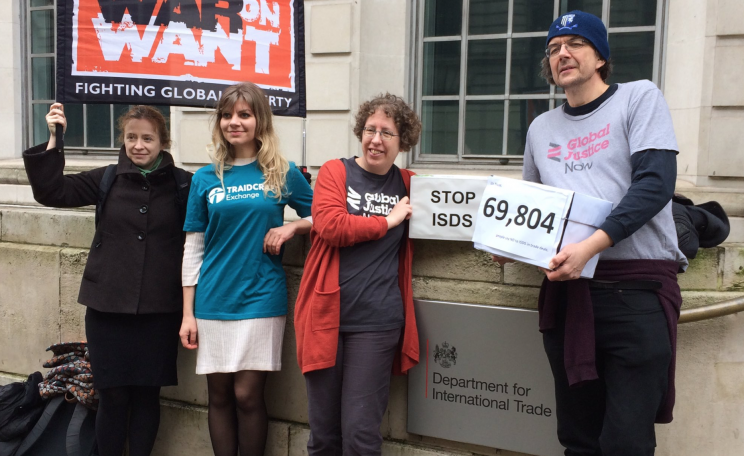The crippling cost of bringing legal cases is not preventing NGOs, charities and individuals challenging environmental damage, claims the UK government.
Under the Aarhus Convention, signed by the UK in 1998, people should not be denied environmental justice because of the unreasonable financial risks of bringing a case to court.
The UN Committee overseeing that convention ruled in August that the UK was failing to 'remove or reduce financial barriers to access to justice'.
In response, Defra and the Ministry of Justice disagreed, and pointed to existing Protective Costs Orders (PCO) where a court can restrict the costs a claimant will be forced to pay so as not to deter a case for which there may be genuine public interest. It said it was working to develop 'clear rules' on these to provide greater certainty to people.
No certainty of costs
However, legal activists say these fell well short of providing the necessary cost certainty and claimants wishing to challenge public authority decisions in court would still not know whether they would face huge financial penalties if they lost.
The charity Buglife was the first to be awarded a PCO in an environmental case back in 2008 when it challenged Thurrock Thames Gateway Development Corporation over its decision to develop on a site of high conservation value. CEO Matt Shardlow said there were still many uncertainties with PCOs.
'You have to ask a court for a PCO separately so if you fail suddenly you may have to face the defendants costs as well as legal costs from the abortive court process.'
He said the timing was unhelpful to small NGOs and charities too. Buglife only received their PCO two weeks before the case giving them limited time as a charity to raise the £10,000 in funds needed to cover legal costs.
Legal activists ClientEarth say PCOs on their own will not bring the UK into line with international law and its obligations under the Aarhus Convention. It says individuals and groups should know at the outset of a case of public interest the costs they will face if they lose.
'The system was designed to stop you bringing cases in a time before human rights and environmental cases of public interest. The cost rules are ridiculous and have not kept up with the change in how people use courts,' said ClientEarth CEO James Thornton.
Useful links
Defra consultation on Aarhus Convention
Costing the Earth: a toolkit for magistrates and anyone interested in environmental crime
| READ MORE... | |
 |
NEWS Activists win historic ruling on 'people's law on the environment' Crippling costs of legal action prevents people mounting challenges over environmental damage, finds UN Committee |
 |
NEWS Legal costs review may not help environmental cases Major judicial report may not help NGOs and individuals challenge environmental damage in courts without facing prohibitive financial risk |
 |
INVESTIGATION Can lawyers save the world? A new species of eco-lawyer is emerging from the legal undergrowth. James Thornton advocates a wig-and-gown approach so campaigners can strengthen their case against unethical corporations |
 |
NEWS ANALYSIS How the legal system is preventing environmental justice Individuals and local campaign groups are being prevented from challenging environmental damage because of the potentially crippling cost of legal action |
 |
NEWS Oil giant Total pleads guilty in Buncefield case Oil company admits guilt and expresses ‘regret’ over safety breaches after oil depot explosion that caused injuries and environmental damage |






